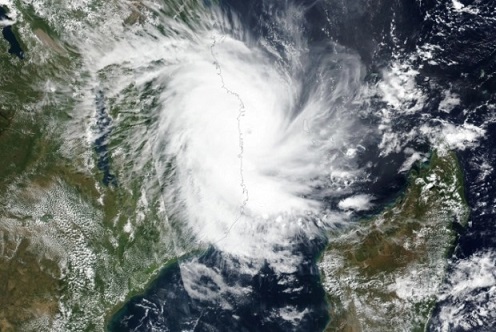Cyclone Gulab weakened on Monday after claiming three lives, inundating low-lying areas as well as disrupting power supplies in regions along India’s south-eastern coast.
The tropical storm barrelled into the coasts of Andhra Pradesh and Odisha states from the Bay of Bengal with wind speeds up to 90 kilometres per hour late on Sunday, forcing evacuations of some 80,000 people.
Various parts of Srikakulam district in Andhra Pradesh as well as main port city of Vishakapatnam continued to receive heavy rainfall on Monday.
Three people had died due to house and tree collapses, K Kanna Babu, chief of the Andhra Pradesh Disaster Management Authority, told dpa.
One fisherman was missing and another injured during the storm, local police said.
“Many trees and electricity poles were uprooted in the storm. Villages and areas in Vishakapatnam were inundated as well, but the situation has now returned to normal, there is no water-logging and power supplies have been restored,” Babu said.
National Disaster Response Force teams were carrying out relief work, including clearing roads blocked by uprooted trees, Odisha disaster management chief PK Jena said, adding there was no “major damage.”
India’s Meteorological Department said Gulab had weakened and turned into a “deep depression” as it travelled inland.
Cyclones often form over the Bay of Bengal between April and November, bringing widespread destruction and flooding to Indian coastal areas.
A more powerful cyclone, Yaas, pounded the region in May. The region’s worst-ever cyclone struck Odisha in 1999, claiming 10,000 lives and leaving 15 million homeless.

